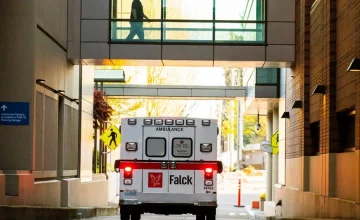
IN CASE OF EMERGENCY – Dial 112
HEALTHCARE
If you’re an International traveler without private health insurance who becomes ill near Galatina, Italy, your options depend heavily on the severity of your condition.

For Emergencies and Urgent Care
Italy’s public healthcare system, the Servizio Sanitario Nazionale (SSN), guarantees medical assistance to anyone in need, regardless of nationality or residency status. This means that if you have a medical emergency, you can go to the nearest public hospital’s emergency room (Pronto Soccorso) and receive treatment.
- How it works: In a true emergency, you will not be asked for upfront payment. You will be triaged and treated based on the severity of your condition, using a color-coded system. For example, a “red code” is for life-threatening emergencies and is seen immediately, while a “green code” is for a minor issue and will have a longer wait time.
- What you’ll pay: While emergency care is guaranteed, it is not always free for non-residents. You may be charged for the services you receive, especially for non-critical care (e.g., “green code” services). The costs, however, are typically significantly lower than what you would pay in the United States without insurance. The fee for emergency services is often referred to as a “ticket” (ticket sanitario).
- Location: The main public hospital serving the Galatina area is the Ospedale Santa Caterina Novella

For after-hours and weekend care, you can also go to the Continuità Assistenziale (Guardia Medica), which is a medical guard service that provides care during nights, weekends, and holidays.
Other clinics in the area include:
- Area Salute srl: a private medical clinic located at Corso Principe di Piemonte, 19.
- SCAP: a clinic that is open on weekends from 8:00 AM to 8:00 PM.
The following map shows the location of these facilities.
For any specific medical concerns, it is recommended to call the facility beforehand
For Non-Emergencies
For a non-emergency illness, like a cold, minor infection, or a minor injury, you have a few options, all of which will likely require payment.
- Pharmacies (Farmacia): For minor ailments, a pharmacist can often provide advice and over-the-counter medication. Italian pharmacists are highly trained and can be a great first point of contact for minor health issues. This is often the simplest and most affordable option. Be sure to bring your prescriptions- refills or replacements can be difficult and expensive.
- Walk-in clinics (Ambulatorio): There are walk-in clinics that may be able to provide care for non-urgent issues. You will be charged for the visit, and it’s a good idea to confirm the cost upfront.
- Private doctors: You can seek out a private doctor, often one who speaks English, for an appointment. This will be an out-of-pocket expense, and you’ll need to pay the full cost of the visit. You may have to make an appointment in advance.
What to Keep in Mind
- Payment is your responsibility: The U.S. government, including Medicare, does not cover healthcare costs abroad. The patient is responsible for all expenses incurred.
- The U.S. Embassy and Consulates: While a consular officer cannot pay for your medical expenses, they can assist in locating medical services and can help inform your family or friends of your situation.
- Language barrier: While medical professionals in Italy are well-trained, not all of them will speak English. Having a translation app or a phrasebook handy, or seeking out an English-speaking doctor, can be helpful.
While emergency care is accessible, the U.S. Embassy and consulates in Italy strongly recommend that all travelers have international health insurance to cover potential medical expenses, including medical evacuation, which can be extremely expensive.
What is the Quality of Healthcare in Puglia?
Healthcare in Italy is often highly regarded globally, but its quality can vary significantly by region. Puglia, located in the southern part of the country, has a healthcare system with notable strengths and some challenges.
Overall Strengths of Italian Healthcare
- Universal Coverage: The Italian national healthcare system (Servizio Sanitario Nazionale, SSN) provides universal coverage to all citizens and legal residents. This means most services are free at the point of use, with some co-payments for specialist visits, diagnostic tests, and prescription drugs.
- High-Quality Public Hospitals: Italy has a network of well-regarded public hospitals and university teaching hospitals that provide comprehensive and high-quality care, including for emergencies.
- Good Health Outcomes: Italy consistently ranks well for life expectancy and has low infant mortality rates, indicators of a strong overall public health system.
In Puglia
Healthcare in Puglia is primarily public, managed by six Local Health Authorities. While it operates on the same principles as the national system, it faces specific regional challenges.
Challenges:
- Longer Wait Times: One of the most common complaints about the public healthcare system in Southern Italy, including Puglia, is the long waiting lists for specialist appointments and non-emergency procedures. This can lead some residents to seek care in private clinics or even travel to northern regions for faster treatment.
- Regional Disparities: There is a known gap in healthcare quality between Italy’s northern and southern regions. Southern regions like Puglia may have fewer resources and less access to certain advanced treatments compared to their northern counterparts.
- Infrastructure and Staffing: Some public hospitals in Puglia may face issues with infrastructure limitations and a shortage of beds.
Positive Aspects and Strengths in Puglia:
- Competent and Dedicated Professionals: Many doctors and healthcare staff in Puglia are highly competent and committed to providing quality care. Some hospitals, like Ospedale Perrino in Brindisi, have received praise for specific departments, such as gynecology.
- Private Healthcare as an Alternative: Puglia has a growing private healthcare sector that offers a valuable alternative. Private hospitals and clinics often have shorter wait times, offer more comfortable facilities, and are more likely to have multilingual staff, which can be a significant benefit for expatriates and tourists.
- Integrated Care Initiatives: The region has been actively working to improve the system by implementing models for “integrated care,” particularly for chronic patients. This involves better coordination between hospitals and local health services to improve patient management.
- Specialized Facilities: Puglia is home to specialized medical centers, such as Anthea Hospital in Bari, which is recognized for its excellence in areas like cardiovascular surgery and neurology. The Casa Sollievo della Sofferenza in Foggia is another notable private scientific research hospital.
Top rated Hospitals in Puglia
Identifying the “highest rated” hospitals in Puglia, as in any region, is complex because it depends on the criteria used (patient reviews, specialized expertise, or national rankings). However, several hospitals in the region consistently stand out for their quality of care, particularly in specific specialties.
1. Casa Sollievo della Sofferenza (San Giovanni Rotondo, Foggia)
This is one of the most well-known and highly regarded hospitals in Southern Italy. It is a private scientific research hospital founded by Saint Padre Pio. It has consistently appeared in lists of the best hospitals in Italy, often ranking among the top 50 nationally. As a research hospital, it excels in a wide range of medical fields, including cardiology, oncology, neurosurgery, and various other clinical and surgical specialties.
2. Policlinico di Bari (Bari)
As the main public university hospital in Bari, it serves as a major hub for healthcare and medical education in the region. It is affiliated with the University of Bari’s Faculty of Medicine and Surgery. This hospital also frequently appears in national rankings of top hospitals, demonstrating its broad capabilities in various departments. It offers a comprehensive range of services, from general medicine and surgery to specialized care. It is an important referral center for complex cases in the region.
3. Anthea Hospital (Bari)
Part of the private GVM Care & Research group, Anthea Hospital is highly respected and internationally recognized for its specialized care, particularly in cardiology. It is considered a reference point for heart diseases in Italy. Its excellence in cardiovascular surgery, interventional cardiology, and neurosurgery has made it a top choice for patients seeking these specific treatments.
4. Città di Lecce Hospital (Lecce)
Another facility belonging to the GVM Care & Research group, this private hospital is a major center for specialized services in the Salento area. It is particularly known for its excellence in cardiac surgery, interventional cardiology, and ophthalmology, especially for conditions like senile maculopathy and diabetic retinopathy. It also has strong departments in orthopedics and neurosurgery.
5. Ospedali Riuniti di Foggia (Foggia)
This is the main university hospital in Foggia and a key part of the public health system in the northern part of Puglia. It has a wide array of specialized departments, including emergency and trauma care, cardiothoracic vascular, and women’s and children’s health. It is an important center for emergency services and complex treatments in the province.
Other Notable Hospitals
- Vito Fazzi Hospital (Lecce): A significant public hospital in the Lecce province known for its comprehensive services.Ospedale Perrino (Brindisi): A well-regarded public hospital, often praised for its professional and competent staff.
- Villa Lucia Hospital (Conversano): Another GVM hospital known for its excellence in orthopedics, bariatric surgery, and interventional cardiology.
Private Health Insurance
If you are a short-term visitor or a non-resident, or if you simply prefer it, you can rely on private health insurance. Many expats and Italians choose private insurance to avoid potential long wait times for specialist appointments and to have more choice over doctors and facilities. Private plans often offer quicker access to care, a wider selection of providers, and more comfortable amenities.
- International Providers: A variety of international health insurance companies, such as Faye, Cigna Global,
- Allianz Care, and Bupa Global, offer plans that are specifically designed for expatriates and travelers.
- What it Covers: Private insurance can cover everything from routine check-ups to major surgeries and emergency care. The cost and coverage of a plan will vary based on factors like your age, the level of coverage, and whether you want additional benefits like dental care.
- Upfront Costs: With a private plan, you may have to pay for services upfront and then be reimbursed by your insurance company.

